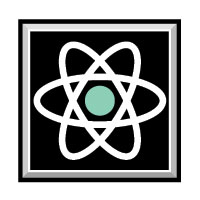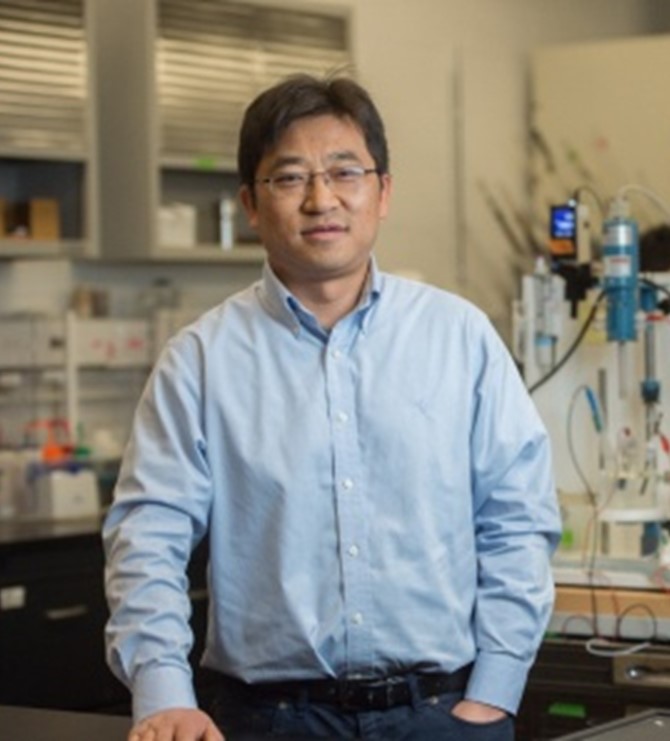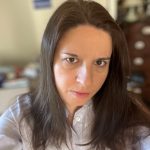 The ECS Energy Technology Division election is now open. The division has a great slate of candidates this year with two candidates for division treasurer. Their biographical sketches and statements follow.
The ECS Energy Technology Division election is now open. The division has a great slate of candidates this year with two candidates for division treasurer. Their biographical sketches and statements follow.
ECS division officers serve as volunteers. We urge all ECS Energy Technology members to take part in this important election! Voting is open from April 3 through April 28. Voting instructions and the link to the electronic voting proxy are at the end of the page.
Gang Wu
Biography
Gang Wu is a Department of Chemical and Biological Engineering professor at the University at Buffalo (UB), The State University of New York (SUNY-Buffalo). He completed his PhD studies at the Harbin Institute of Technology in 2004, followed by extensive postdoctoral training at Tsinghua University (2004-2006), the University of South Carolina (2006-2008), and Los Alamos National Laboratory (LANL) (2008-2010), where he was promoted to staff scientist. He joined SUNY-Buffalo as a tenure-track assistant professor in 2014 and was quickly promoted to tenured associate professor in 2018 and full professor in 2020. His research focuses on functional materials and catalysts for electrochemical energy technologies. He has published over 300 papers in prestigious journals, including Science, Nature Energy, Nature Catalysis, Journal of the American Chemical Society, and Angewandte Chemie. His papers are cited more than 42,000 times with an h-index of 109 (Google Scholar). He currently leads and participates in multiple fuel cell, battery, and renewable fuel (e.g., NH3) related projects with a total research funding of more than $6.0 M. Since 2018, Dr. Wu has been continuously acknowledged by Clarivate Analytics as a Highly Cited Researcher. He recently received the SUNY Chancellor’s Award for Excellence in Scholarship and Creative Activities (2021) and UB’s Exceptional Scholar–Sustained Achievement Award (2020).
Statement of Candidacy
My passion and love for electrochemistry started when I was 17 during my undergraduate studies at the Harbin Institute of Technology. In the department of Applied Chemistry, I selected electrochemical engineering as my undergraduate major among different subdisciplines such as environmental science, polymer science, fine chemical engineering, and electrochemical engineering. I joined The Electrochemical Society as a postdoc at the University of South Carolina. Then, in 2015, when I was a tenure-track assistant professor at SUNY-Buffalo, I was elected member at large of the ECS Energy Technology Division (ETD). I actively organized many ETD symposia, served as session chair during ECS meetings, and on behalf of ETD, I am a leading guest editor for Journal of The Electrochemical Society focus issues. Encouraged by the Division Chair, in 2017, I created a new annual continuing symposium (I04) focusing on nitrogen electrochemistry for sustainable and carbon-free energy storage and conversion, which is timely and desirable for developing innovative carbon-neutral technologies. For many years, I have served as a member of ECS award committees, including the ETD Research Award and ECS Toyota Young Investigator Award. Overall, I am always responsible and reliable in serving ECS, as I have been strongly supported by the Society and value giving back to it.
My career development parallels the growth of the ECS Energy Technology Division. Among various scientific societies, the ECS Energy Technology Division is my home. My students, postdocs, and I attend biannual meetings and present our latest research on water, carbon, and nitrogen-related electrochemical reactions for energy technologies such as fuel cells, water electrolyzes, CO2 reduction, and advanced electrosynthesis. My research group at SUNY-Buffalo has established an internationally recognized reputation in applied electrocatalysis in the last 10 years by leading/participating in multiple DOE/NSF projects and publishing high-impact scientific papers. In addition to bringing our research expertise and reputation to the ETD, my goal is to boost fundraising to support ETD activities based on our extensive collaborations with industry companies. Also, I am dedicated to recruiting student members to the division, especially from underrepresented groups. Like many of you, I am enthusiastic about making the ECS Energy Technology Division financially and technically stronger and more diversified, which in turn supports our goals of addressing current energy and environmental sustainability issues via developing innovative electrochemical energy technologies.
Iryna Zenyuk
Biography
Iryna Zenyuk is an Associate Professor in Chemical and Biomolecular Engineering at the University of California, Irvine (UCI). She is also a Director of the National Fuel Cell Research Center (NFCRC) at UCI. Prof. Zenyuk holds a BS in mechanical engineering from the New York University Tandon School of Engineering (2008), and MS (2011) and PhD (2013) degrees from Carnegie Mellon University. After a postdoctoral fellowship at Lawrence Berkeley National Laboratory in the Electrochemical Technologies Group with Dr. Adam Z. Weber, Prof. Zenyuk joined the faculty of the Mechanical Engineering Department at Tufts University in 2015. Since 2018, she has been a faculty member at UCI. There, Zenyuk’s group works on enabling energy solutions by researching low-temperature hydrogen fuel-cells, Li-metal batteries, and electrolyzers. She works on design strategies encompassing novel materials, diagnostic tools, and device-level testing. She is a recipient of the ECS Energy Technology Division Srinivasan Young Investigator Award (2021); UCI Samueli School of Engineering Early Career Faculty Excellence in Research Award (2019); ECS Toyota Young Investigator Award (2018); Research Corporation for Science Advancement, Scialog Fellow in Advanced Energy Storage (2017-2019); NSF CAREER award (2017); and InterPore Society Fraunhofer Award for Young Researchers (2017). Prof. Zenyuk has published over 80 journal publications and delivered more than 100 invited presentations on energy conversion and storage topics.
Statement of candidacy
The Electrochemical Society and specifically the Energy Technology Division (ETD) enters a new era, where renewable energy and decarbonization technologies will shape our society and economy to reach net-zero emissions by 2050. In the near future, the transportation sector will be electrified, and we will need energy solutions to transform the chemical manufacturing industry (Haber-Bosch process, cement, ammonia) and other historically difficult to decarbonize sectors. Hydrogen will play a key role as an energy carrier and fuel for energy storage and feedstock for chemical manufacturing. Electrosynthesis will be a natural choice for chemical production. ETD has been one of the Society’s largest divisions and will need strong leadership to oversee the field’s transformation away from fossil fuels. My leadership roles with ECS include symposia organization, chair of travel awards for the last 6 years, ETD member at large for the last 5 years, and overall, an ECS member and supporter since 2010. I will put my effort into building initiatives and symposia that emphasize decarbonization efforts, building strategic collaborations with relevant industry stakeholders to support ETD through fundraising, strengthening ETD’s international presence by encouraging participation of diverse stakeholders, and growing revenue for the division via launching more ECS special issues. I am also a supporter of the Open Access and Free the Science initiative ECS launched in 2010. If elected, I am excited to work with other division officers to shape the ETD vision toward the green energy future.
Voting instructions
Proceed to the electronic proxy ballot and follow these easy steps to cast your vote.
- Enter your ECS member number and password. Your member number is under MY ACCOUNT/ECS ID when you log on to the ECS website.
- After logging on, your electronic proxy ballot opens. Enter your vote for each office.
- If you have trouble logging on, contact customer service.
- You can only vote once.
Thank you for participating in this important election!



